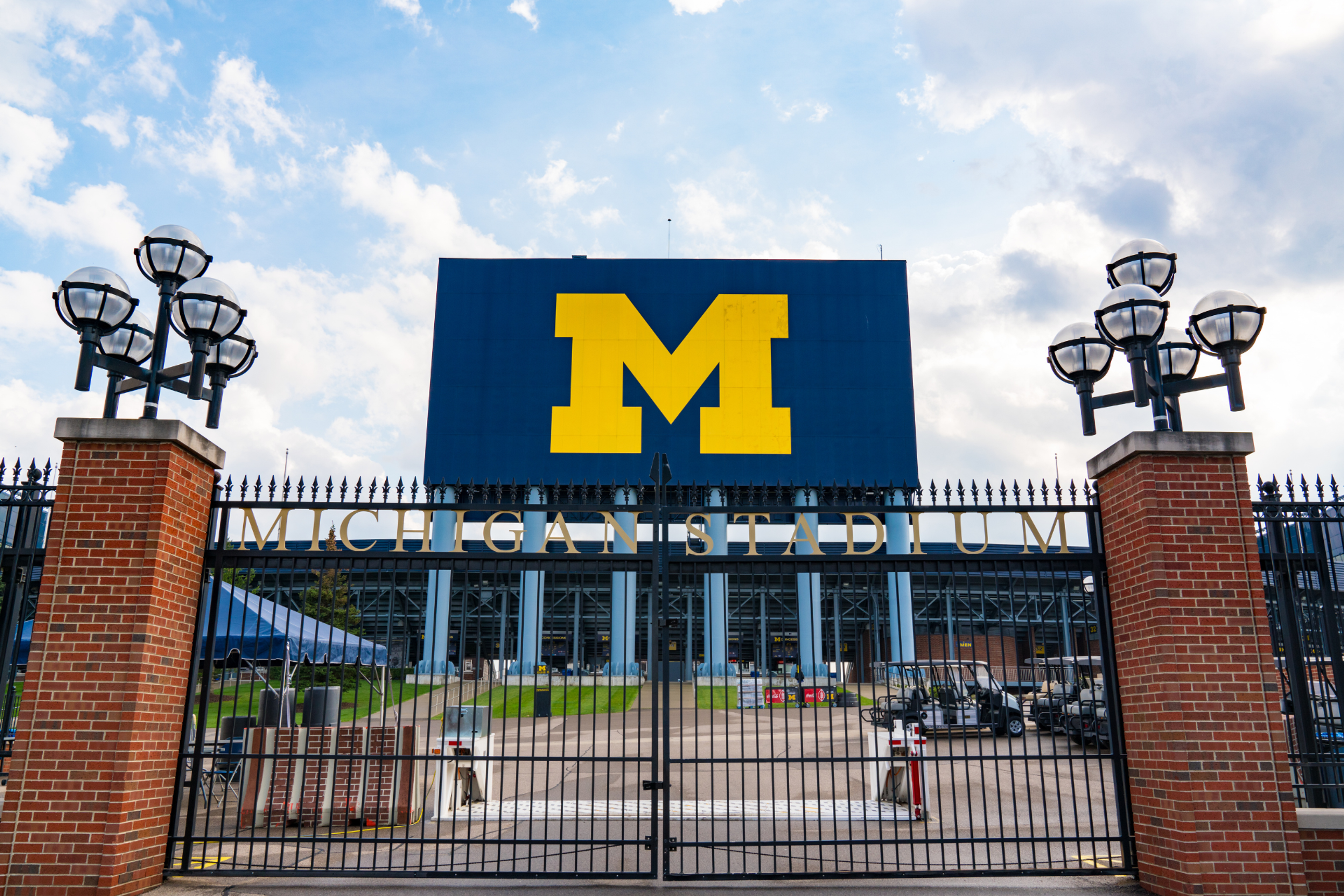
Table of Contents
Carnegie Mellon University (CMU) is renowned for its rigorous academic programs and status as a leading research institution. With a competitive selection process, understanding the acceptance rate at CMU, both overall and by individual schools within the university, is vital for prospective students. In this article, we will explore the details of CMU’s admissions process, examining acceptance rates by individual schools and offering strategic advice to increase your chances of acceptance.
What is the Carnegie Mellon Acceptance Rate?
In 2024, Carnegie Mellon University had an acceptance rate of approximately 11%.
Here's the breakdown by school:
| School | Acceptance Rate |
|---|---|
| School of Computer Science | 7% |
| Tepper School of Business | 23% |
| Dietrich College of Humanities and Social Sciences | 13% |
| School of Design | 11% |
| College of Engineering | 20% |
| Mellon College of Science | 18% |
| College of Fine Arts: School of Architecture | 34% |
| College of Fine Arts: School of Art | 23% |
| College of Fine Arts: School of Drama | 4% |
| College of Fine Arts: School of Music | 31% |
| Heinz College of Information Systems and Public Policy | 24% |
The university’s commitment to academic excellence and rigorous standards contributes to its status as a top-tier institution, attracting a competitive applicant pool worldwide. Because of the range of applicants each year, CMU’s admissions committees use a holistic review process, evaluating factors beyond grades and test scores such as extracurricular involvement, leadership potential, essays, and recommendations.
While the overall acceptance rate may seem low, it is important to recognize that CMU is comprised of several distinct schools, each with its own unique admission requirements and acceptance rates. These schools include the College of Engineering, the School of Computer Science, the College of Fine Arts, the Tepper School of Business, and many more. Each school has its own specialized programs and areas of study, attracting students with diverse interests and talents.
Exploring the acceptance rates across CMU's individual schools can help provide prospective applicants with valuable insights into their chances of admission. By understanding the unique criteria and requirements of each school, applicants can tailor their application strategies effectively to enhance their chances of admission.
Carnegie Mellon Acceptance Rates by School (2024)
School of Computer Science
The School of Computer Science at CMU has an acceptance rate of around 7%. It is highly regarded in the field and known for its rigorous coursework and cutting-edge research opportunities. Prospective students interested in computer science, artificial intelligence, or robotics will find this school particularly appealing.
Within the School of Computer Science, students have the opportunity to work with renowned faculty members who are experts in their respective fields. The school offers a wide range of courses, from foundational computer science principles to advanced topics such as machine learning and data science. Students also have access to state-of-the-art research facilities, where they can collaborate with fellow students and faculty on groundbreaking projects.
The School of Computer Science organizes various industry partnerships and internship programs, allowing students to gain real-world experience and establish valuable connections in the tech industry. Graduates from this program often find themselves in high-demand positions at top tech companies around the world.
Tepper School of Business
The Tepper School of Business has a comparatively higher acceptance rate of approximately 23%. Known for its top-notch faculty and emphasis on analytical and quantitative skills, the school attracts aspiring business leaders. Strong candidates often possess a strong academic background and demonstrate exceptional leadership potential.
Students at the Tepper School of Business benefit from a comprehensive curriculum that covers various aspects of business management, including finance, marketing, operations, and entrepreneurship. The school also offers specialized programs and concentrations, allowing students to tailor their education to their specific career goals.
In addition to classroom learning, the Tepper School of Business provides numerous experiential learning opportunities, such as case competitions, consulting projects, and internships. These hands-on experiences enable students to apply their knowledge in real-world scenarios and develop practical skills that are highly sought after by employers.
Dietrich College of Humanities and Social Sciences
The Dietrich College of Humanities and Social Sciences at Carnegie Mellon has an acceptance rate of about 13%. It offers a diverse range of programs in fields such as psychology, economics, history, and international relations. The college also emphasizes interdisciplinary learning, encouraging students to explore connections between different disciplines and apply their knowledge to real-world issues and challenges.
Students at the Dietrich College of Humanities and Social Sciences also have access to research opportunities, internships, study abroad programs, and extracurricular activities that enrich their educational experience and expand their horizons.
By fostering a supportive and inclusive community where students can engage in lively discussions, collaborate on projects, and form lasting connections with peers and faculty members, Dietrich College encourages students to become thoughtful leaders, critical thinkers, and engaged citizens in an ever-changing world.
School of Design
With an acceptance rate of around 11%, the School of Design at CMU seeks students who exhibit a passion for design, visual communication, and the ability to think critically. Prospective students are encouraged to showcase their portfolio and demonstrate their creativity during the admissions process.
At the School of Design, students are immersed in a collaborative and interdisciplinary environment, where they can explore various design disciplines, including graphic design, product design, and interaction design. The curriculum emphasizes both theoretical knowledge and practical skills, allowing students to develop a strong foundation in design principles and techniques.
One unique aspect of the School of Design is its strong connection to industry professionals and design firms. Students have the opportunity to engage in internships, design projects, and mentorship programs, which provide valuable industry exposure and networking opportunities. Graduates from this program often go on to work in prestigious design studios, advertising agencies, or pursue entrepreneurial ventures.
College of Engineering
CMU’s College of Engineering maintains a competitive acceptance rate of 20%. Known for its cutting-edge research and innovative programs, the College of Engineering offers students a dynamic learning environment where they can explore various disciplines within engineering. From the mechanical side of robotics and artificial intelligence to sustainable design and biomedical engineering, the college equips students with the skills and knowledge needed to tackle real-world challenges.
With a wide array of resources and expert faculty always available to students, the College of Engineering at CMU is a hub for innovation and creativity. Students have access to hands-on learning opportunities and collaborative research projects that prepare them for successful careers in engineering and related fields.
Mellon College of Science
With an acceptance rate of approximately 18%, the Mellon College of Science is highly selective, attracting top-tier students with a passion for science and discovery. The college offers rigorous academic programs in areas including biology, chemistry, physics, and mathematical sciences, providing students with rigorous academic curriculum and opportunities for hands-on research experiences.
Students in the Mellon College of Science benefit from state-of-the-art research facilities, cutting-edge laboratories, and collaboration with world-renowned faculty who are leaders in their respective fields. Through experiential learning and mentorship, students develop critical thinking skills, gain practical laboratory experience, and contribute to groundbreaking research that advances scientific knowledge and innovation.
College of Fine Arts
The College of Fine Arts at CMU comprises several specialized schools, each offering unique programs and concentrations in the arts. Below are the acceptance rates for the individual schools within the College of Fine Arts:
- School of Architecture: 34%
- School of Art: 23%
- School of Drama: 4%
- School of Music: 31%
With a diverse range of programs including theater, music, visual arts, and architecture, the College of Fine Arts fosters creativity and innovation in its students. The college provides creative facilities including studios, performance spaces, and exhibition galleries along with access to world-class faculty who are all accomplished artists and scholars in their respective fields.
Heinz College of Information Systems and Public Policy
The Heinz College of IS and Public Policy at CMU has an acceptance rate of approximately 24%. The school attracts students passionate about using technology and policy to effect positive change. Students benefit from innovative programs that blend cutting-edge coursework in information systems with rigorous training in public policy, preparing them for impactful careers in areas such as data analytics, cybersecurity, and public administration.
The college emphasizes experiential learning, encouraging students to apply theoretical knowledge to real-world scenarios through internships and research projects. Graduates of the Heinz College emerge as leaders equipped to tackle society's most pressing issues at the intersection of technology and public policy.
Get Into CMU With the Help of an Expert
Applying to a prestigious university like Carnegie Mellon is challenging, but a Leland coach can help you stand out. Boost your chances of joining the CMU community with personalized, expert coaching!
What Factors Impact Admissions at CMU?
In Carnegie Mellon’s admissions process, many factors come into play to ensure a top-tier selection of students who align with the university’s values and mission while demonstrating academic potential. Academic performance is a primary consideration, with emphasis on strong grades, SAT or ACT scores, and challenging coursework related to the intended major. Admissions officers review transcripts for evidence of students’ readiness for CMU’s academic rigor.
Beyond academic achievement, CMU values extracurricular involvement as evidence of a well-rounded individual who contributes positively to the community. Participation in activities, leadership roles, community service, and internships can enhance applicants' profiles, showcasing their ability to balance academic and non-academic pursuits effectively.
The admissions essay and personal statement also offer applicants a prime opportunity to articulate their unique experiences, motivations, and aspirations. Specifically, CMU values insightful and well-crafted responses that demonstrate a genuine connection between applicants’ goals and the university’s academic offerings. Likewise, letters of recommendation from teachers, mentors, or employers can further illuminate an applicant’s character and potential for success at CMU.
Read: Best Free Resources to Prepare for the ACT and SAT
CMU's Admissions Standards and Trends
It is crucial to remain aware of CMU's admissions standards and trends in order to maintain realistic expectations throughout the application process. Admissions standards are rigorous and may change from year to year depending on factors such as the applicant pool and program capacity. Staying informed through official CMU communication channels, attending information sessions, and engaging with admissions representatives can provide valuable insights.
As one of the top universities in the world, Carnegie Mellon holds a commitment to academic excellence and seeks driven, passionate individuals who will contribute to its vibrant community. By understanding CMU's acceptance rate, admission factors, and employing effective strategies, prospective students can increase their chances of securing a spot at this prestigious institution and embarking on a fulfilling academic journey.
Read Next:
- Carnegie Mellon University: College Application & Program Overview
- How to Pick the Best College for You
- The ACT vs. SAT: Which to Take and How to Ace Both
- What Looks Good on College Applications? 6 Tips to Make Your Application Stand Out
FAQ:
What GPA do you need to get into Carnegie Mellon?
- Carnegie Mellon University (CMU) is highly selective, and admitted applicants typically have strong academic records. Although the university does not specify a minimum GPA, most students accepted into competitive programs like the School of Computer Science or Tepper School of Business have an unweighted GPA of 3.8 or higher on a 4.0 scale. CMU uses a holistic review process, meaning factors like extracurricular involvement, test scores, and the high school transcript are also critical to admissions. For those applying early, a high GPA combined with rigorous coursework can enhance chances.
Is Carnegie Mellon a little ivy?
- While Carnegie Mellon is not officially part of the Ivy League, it is considered an elite school known for its excellence in areas such as computer science, fine arts, and engineering. CMU is often grouped with other prestigious institutions like Washington University and MIT, which are sometimes referred to as "Little Ivies" because of their rigorous academic programs, competitive admissions, and outstanding career opportunities.
Is Carnegie Mellon a hard college to get into?
- Yes, Carnegie Mellon University is known for its highly competitive admissions process. The overall acceptance rate for the university varies by program, typically ranging from 10% to 17%, with some schools like the School of Computer Science having even lower acceptance rates.
Is Carnegie Mellon prestigious?
- Absolutely. Carnegie Mellon has earned a reputation as one of the most prestigious universities, especially in fields like computer science, engineering, and fine arts. CMU’s School of Computer Science is world-renowned, and the university’s academic programs in the Tepper School of Business, College of Fine Arts, and Dietrich College of Humanities attract some of the most talented students worldwide. The university's emphasis on innovation and networking opportunities with top industries contributes to its elite status.
What GPA Do You Need to Transfer to Carnegie Mellon University (CMU)?
- To transfer into Carnegie Mellon University, a competitive GPA is needed. While CMU does not set a specific minimum GPA for transfer applicants, successful candidates often have a GPA of 3.5 or higher on a 4.0 scale, depending on the program. Some of the more selective schools within CMU, such as the School of Computer Science or the Tepper School of Business, may prefer transfer students with an even stronger academic record. Along with GPA, CMU evaluates the rigor of prior coursework, standardized test scores (if available), and other achievements.
How Hard Is It to Transfer into Carnegie Mellon University?
- Transferring to Carnegie Mellon is challenging due to the competitive nature of its programs and the limited number of spaces available for transfer students. CMU’s transfer acceptance rate is lower than its freshman acceptance rate, making it highly selective. Additionally, factors such as the applicant's academic background, GPA, completed coursework relevant to their intended major, and strong letters of recommendation all contribute to the admissions decision. Prospective transfer students should be prepared to present a strong application that aligns with CMU’s rigorous standards.



















